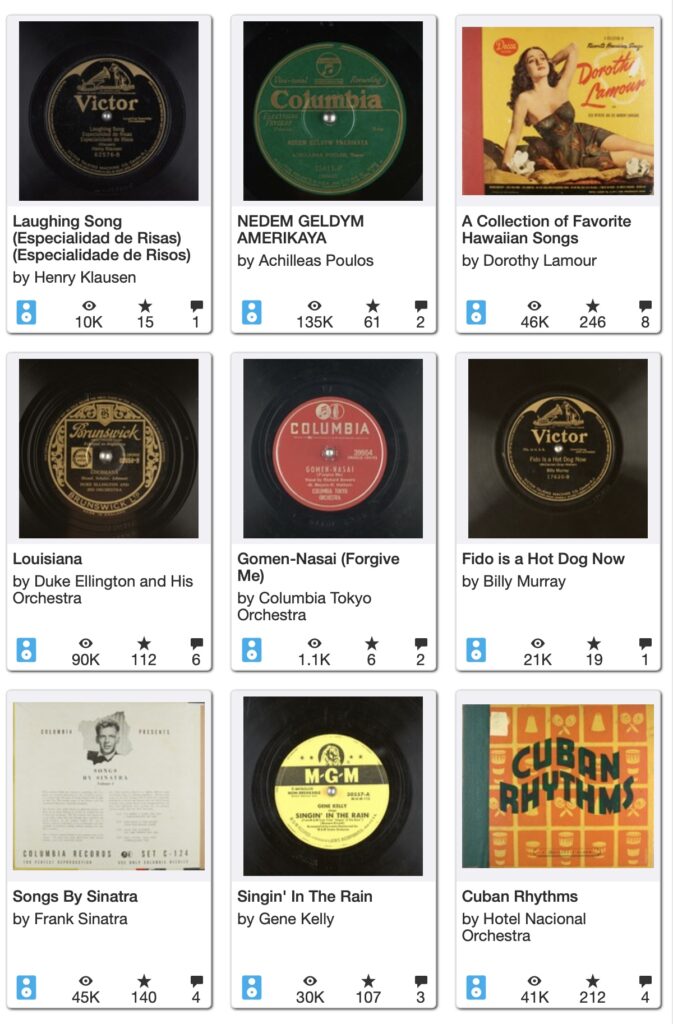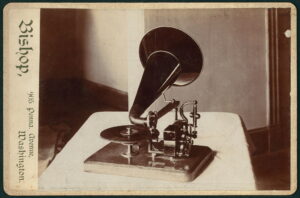“Heard melodies are sweet, but those unheard are sweeter. Therefore, ye soft pipes, play on.” – John Keats:
If record companies had their way, there would be a lot of really sweet music out there. Let me explain.
The music streaming services such as Apple Music, Spotify, Pandora and Amazon Prime all have deep libraries of recordings, but the emphasis always seems to be on what is popular and new. After all, their job is to get people to pay for access to music, and most of what people want access to is new.
But there is a lot of music that predates streaming, predates, MP3s, predates compact discs, predates cassettes, predates 8-tracks, predates vinyl LPs, even predates 45-RPM singles. These are the recordings that were issued on the original commercial music format – the 78-RPM shellac disk.
The format was developed by young German immigrant Emile Berliner who arrived in the United States in 1870 at age 19. He wanted to create a recording format that would record sound on flat discs rather than Edison’s cylinders. And he wanted a format where you could make multiple copies of a recording so that people could buy copies of it and listen to it again and again.He called the player for these disks a gramophone, and for decades they were the way to listen to music at home.
So there was a huge amount of music recorded in this format. Unfortunately, it’s way too hard to access this music today. First of all, these discs are fragile and prone to taking damage to the sound on them with lots of clicks and pops. Second, few people have the equipment that will let them play these disks. And, finally, these discs are rapidly disappearing, and when the last copy of a particular recording disappears, it is gone forever.
Which is why The Great 78 Project is working at digitizing millions of sides of 78-RPM discs. While the most commercially attractive of these recordings have been remastered, cleaned up, and put on LPs or CDs, there are huge collections of these recordings that are orphaned and would eventually disappear if people such as the Internet Archive were not working at actively saving them. The recordings in the Great 78 Project are straight digitizations that are not cleaned up or modernized. They sound just like they would if you played the disc on a gramophone.
So it would seem that a project like this is nothing but good, right? Preserving the history of recorded music. Maybe the recording companies would even want to help support this kind of work financially? That would be a big NO.
According to a post in the Internet Archive Blogs by Chris Freeland, record labels including Sony and Universal Music Groups have filed a lawsuit against the Internet Archive for copyright violation.
While the following is likely not legally relevant, it is important to note that this is a non-profit project to preserve recordings and make them freely available for everyone. These digitizations can be used for teaching, research, and entertainment.
Interested in listening to these recordings while they are still available? Click the image below to hear a sampling of the many recordings in this archive.

Just a sampling of the hundreds of thousands of vintage 78-RPM recordings available at the Great 78 Project.

